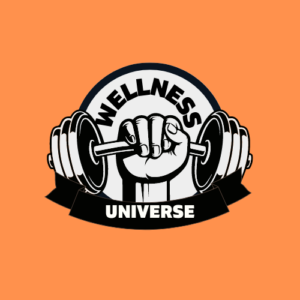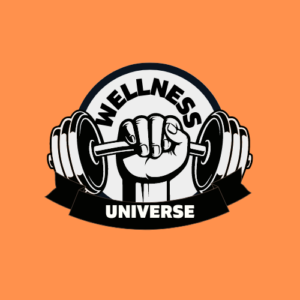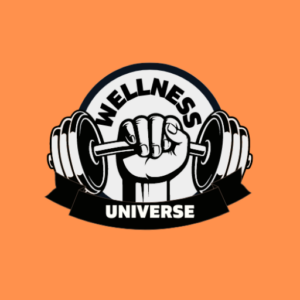Embarking on a fitness journey refers to the intentional and structured pursuit of improving one’s physical fitness, overall health, and well-being. It involves setting goals, adopting healthy lifestyle habits, and engaging in regular exercise and physical activity to achieve desired outcomes. A fitness journey is a personal and transformative experience that goes beyond short-term goals and focuses on long-term sustainable changes.
A fitness journey is unique to each individual, as it is tailored to their specific needs, preferences, and starting point. It can involve a wide range of activities such as cardio exercises, strength training, flexibility exercises, and mindful practices like yoga or meditation. The journey may also include modifications to one’s diet, sleep patterns, stress management techniques, and overall lifestyle choices.
Embarking on a fitness journey holds immense significance for individuals seeking to improve their health and overall quality of life. Here are some key reasons why a fitness journey is important:
- Physical health improvement: Engaging in regular exercise and physical activity has numerous benefits for physical health. It helps strengthen the cardiovascular system, improves muscle tone and strength, enhances flexibility, boosts metabolism, and promotes weight management. Regular physical activity also reduces the risk of chronic conditions such as heart disease, diabetes, and certain types of cancer.
- Mental and emotional well-being: Exercise has a profound impact on mental and emotional health. It releases endorphins, commonly known as “feel-good” hormones, which promote a positive mood, and reduce stress, anxiety, and symptoms of depression. Regular exercise also improves cognitive function, enhances focus, and increases self-confidence and self-esteem.
- Energy and vitality: A fitness journey can significantly increase energy levels and overall vitality. Regular physical activity improves circulation, delivering more oxygen and nutrients to the body’s tissues and organs. This leads to increased energy, improved alertness, and a greater sense of vitality throughout the day.
- Longevity and quality of life: Adopting a fitness journey can positively influence longevity and overall quality of life. Regular exercise has been shown to increase life expectancy and reduce the risk of premature death. It enhances functional abilities, promotes independence, and enables individuals to enjoy an active and fulfilling life well into older age.
- Personal growth and self-discovery: A fitness journey is not just about physical transformation but also about personal growth and self-discovery. It provides an opportunity to challenge oneself, push beyond comfort zones, and discover new strengths and capabilities. It cultivates discipline, perseverance, and resilience, fostering a sense of accomplishment and personal empowerment.
By embarking on a fitness journey, individuals can experience holistic improvements in their physical, mental, and emotional well-being. It offers an empowering path toward self-improvement, personal growth, and a healthier, more fulfilling life.
Starting Your Fitness Journey

One of the first steps in starting a fitness journey is setting clear and realistic goals. Goals provide direction, motivation, and a sense of purpose throughout the journey. When setting fitness goals, it’s important to make them specific, measurable, attainable, relevant, and time-bound (SMART). This means defining the desired outcome, determining measurable indicators of progress, ensuring the goals are within reach, aligning them with personal values and aspirations, and setting a timeframe for achievement.
Examples of fitness goals could include losing a certain amount of weight, increasing strength and muscle tone, improving cardiovascular endurance, participating in a specific event or sport, or simply adopting a more active and healthy lifestyle. Setting goals that are meaningful to you will keep you focused and motivated along your fitness journey.
Before starting any fitness program, it’s essential to assess your current fitness level. This assessment helps you understand your strengths, weaknesses, and areas that need improvement. It also provides a baseline against which you can track your progress and measure the effectiveness of your fitness journey.
There are various ways to assess your fitness level. You can start by evaluating your cardiovascular fitness through exercises like walking, jogging, or cycling to determine your endurance and aerobic capacity. Strength tests, such as push-ups, squats, or lifting weights, can assess your muscular strength. Additionally, flexibility tests like reaching for your toes or performing stretches can evaluate your range of motion.
Alternatively, you may consider seeking professional help from a certified fitness trainer or healthcare professional who can conduct a comprehensive fitness assessment. They can provide a more accurate evaluation of your fitness level, identify any potential limitations or health concerns, and tailor a fitness plan that suits your specific needs and goals.
Before embarking on a fitness journey, it is advisable to consult with a healthcare professional, especially if you have any underlying health conditions or concerns. A healthcare professional, such as a doctor or a registered dietitian, can provide valuable guidance and support to ensure your fitness journey is safe and effective.
During the consultation, you can discuss your goals, medical history, and any concerns you may have. The healthcare professional can assess your overall health, provide recommendations on exercise intensity and duration, discuss dietary considerations, and offer insights into managing any health conditions or medications that may impact your fitness journey.
This consultation is particularly important if you have a history of chronic conditions, are pregnant or postpartum, are over the age of 40, or have been inactive for an extended period. The healthcare professional can help create a personalized fitness plan that takes into account your individual needs, abilities, and limitations, ensuring a safe and successful start to your fitness journey.
By setting clear goals, assessing your current fitness level, and consulting with a healthcare professional, you establish a solid foundation for your fitness journey. This proactive approach enables you to create a personalized plan that aligns with your aspirations, minimizes the risk of injury, and sets you up for long-term success.
Benefits of a Fitness Journey
Embarking on a fitness journey brings numerous benefits to your physical health. Regular exercise and physical activity have been shown to reduce the risk of chronic diseases and improve overall health. Here are some of the key physical health benefits of a fitness journey:
- Weight management: Engaging in regular physical activity helps in weight management by burning calories and building lean muscle mass. It can assist in achieving and maintaining healthy body weight, reducing the risk of obesity-related conditions such as heart disease, diabetes, and certain cancers.
- Cardiovascular health: Regular exercise strengthens the heart muscle, improves blood circulation, and lowers blood pressure. It reduces the risk of developing cardiovascular diseases, including heart attacks, strokes, and coronary artery disease.
- Stronger bones and muscles: Weight-bearing exercises, such as resistance training and weightlifting, stimulate bone growth and increase bone density, reducing the risk of osteoporosis. Additionally, strength training exercises help build and maintain muscle mass, improving overall strength and stability.
- Improved immune system: Regular physical activity has been shown to enhance the immune system’s function, reducing the risk of certain illnesses and infections.
- Better sleep: Engaging in physical activity can improve the quality of sleep, helping you fall asleep faster and enjoy deeper, more restorative sleep. It also helps regulate your sleep-wake cycle, promoting a consistent and refreshing sleep pattern.
In addition to the physical benefits, a fitness journey has a positive impact on mental and emotional well-being. Regular exercise has been linked to improved mood, reduced symptoms of anxiety and depression, and enhanced overall mental well-being. Here’s how a fitness journey can boost your mental health:
- Stress relief: Physical activity stimulates the release of endorphins, the body’s natural “feel-good” chemicals, which help reduce stress and improve mood. Exercise provides a healthy outlet for managing stress and promoting relaxation.
- Enhanced cognitive function: Regular exercise has been shown to improve cognitive function, including memory, attention, and problem-solving skills. It stimulates the growth of new brain cells and enhances the brain’s ability to form connections.
- Increased self-esteem: Achieving fitness goals, improving physical fitness, and taking care of your health can boost self-confidence and self-esteem. The sense of accomplishment from overcoming challenges and making progress in your fitness journey contributes to a positive self-image.
- Mood regulation: Exercise has a positive impact on mood regulation, helping to alleviate symptoms of anxiety and depression. It promotes the release of neurotransmitters like serotonin and dopamine, which are associated with improved mood and a sense of well-being.
Regular physical activity improves energy levels and enhances stamina. As you engage in a fitness journey, you’ll experience increased endurance, allowing you to perform daily activities with less fatigue. Regular exercise helps your cardiovascular system work more efficiently, delivering oxygen and nutrients to your muscles, which boosts overall energy levels.
A fitness journey can significantly improve self-confidence and body image. As you progress in your fitness goals, achieving milestones and overcoming obstacles, you’ll develop a sense of pride and self-assurance. Your physical transformations and increased fitness levels contribute to a positive self-perception and improved self-confidence in various areas of life.
In summary, a fitness journey offers a multitude of benefits for both physical and mental well-being. From weight management and cardiovascular health to improved mood and self-confidence, embracing a fitness journey positively impacts various aspects of your life. By committing to regular physical activity and making fitness a priority, you can reap the rewards of a healthier, happier, and more confident you.
Duration of a Fitness Journey
When embarking on a fitness journey, it’s essential to recognize that it is not a temporary endeavor but a lifelong commitment to your health and well-being. Fitness is a continuous journey that involves adopting healthy habits, maintaining consistency, and adapting to various stages of life. While specific goals may have time frames attached to them, the overall fitness journey extends beyond reaching those goals. It’s about cultivating a sustainable and healthy lifestyle that you can maintain in the long run.
The duration of a fitness journey varies for each individual and depends on several factors, including starting points, goals, commitment, and lifestyle. It’s crucial to set realistic expectations for progress and avoid comparing your journey to others. Progress is not always linear, and there may be periods of plateaus or setbacks along the way. It’s important to focus on gradual improvements and celebrate small victories, as they contribute to long-term success.
Instead of fixating on a specific timeline, shift your focus to building healthy habits and making consistent progress. Embrace the concept of sustainable change rather than seeking quick fixes or rapid transformations. Remember that the most significant transformations occur over time and require patience, dedication, and perseverance.
A fitness journey is not a destination but an ongoing process of continuous improvement. As you progress, your goals may evolve, and new challenges and opportunities may arise. Embrace the mindset of constantly striving to be better and finding new ways to challenge yourself physically and mentally.
Set new goals or milestones periodically to keep yourself motivated and engaged in your fitness journey. This could involve increasing the intensity or duration of your workouts, trying new forms of exercise, participating in fitness events or competitions, or exploring different fitness disciplines.
Furthermore, focus on holistic growth beyond physical fitness. Consider incorporating other elements into your fitness journey, such as improving flexibility, practicing mindfulness and stress management techniques, or enhancing your nutrition. The key is to maintain a growth mindset and embrace opportunities for self-improvement in all aspects of your well-being.
In summary, the duration of a fitness journey is not limited to a specific timeframe but is an ongoing commitment to a healthy and active lifestyle. Understand that progress may take time, and it’s important to set realistic expectations and avoid comparing yourself to others. Embrace the concept of continuous improvement, continually challenging yourself, and exploring new growth opportunities. Remember, a fitness journey is a personal and lifelong endeavor that extends far beyond reaching initial goals, and the key to success lies in maintaining consistency and a positive mindset throughout the journey.
Creating a Fitness Journey Plan
One of the keys to a successful fitness journey is finding activities and exercises that you genuinely enjoy. When you engage in activities you like, you’re more likely to stay motivated and committed to your fitness plan. Take some time to explore different types of physical activities, such as running, swimming, dancing, hiking, cycling, or playing a sport. Experiment with various exercises and discover what brings you joy and fulfillment.
Consider your preferences, interests, and lifestyle when choosing activities. If you enjoy being outdoors, you might opt for activities like hiking or cycling. If you prefer a social environment, group fitness classes or team sports could be a great fit. The goal is to find activities that keep you engaged, excited, and eager to participate.
A well-rounded fitness journey plan includes a combination of cardio, strength training, and flexibility exercises. Each component plays a vital role in improving overall fitness, health, and functional ability.
Cardiovascular exercises, such as jogging, swimming, or cycling, elevate your heart rate and help improve cardiovascular health, endurance, and calorie burn. Aim for at least 150 minutes of moderate-intensity aerobic activity or 75 minutes of vigorous-intensity aerobic activity each week.
Strength training exercises, such as weightlifting or bodyweight exercises, help build muscle strength, improve bone density, and enhance overall body composition. Include strength training exercises at least two days a week, targeting all major muscle groups.
Flexibility exercises, such as yoga or stretching routines, improve joint mobility, muscle flexibility, and posture. Incorporate stretching exercises into your fitness plan to enhance your range of motion and reduce the risk of injuries.
Remember to start gradually and progress gradually. If you’re new to exercise or returning after a break, begin with low-intensity activities and gradually increase the duration and intensity as your fitness level improves.
To stay organized and motivated, it’s essential to design a fitness journey plan that includes a schedule and milestones. Set aside specific days and times for your workouts, treating them as non-negotiable appointments with yourself. Consistency is key, so aim for regular exercise sessions throughout the week.
Consider your personal schedule and commitments when designing your fitness plan. Find a balance that works for you, whether it’s early morning workouts, lunchtime sessions, or evening exercises. Choose a time when you’re most likely to follow through with your fitness routine and when you feel energized and focused.
Setting milestones can provide a sense of direction and accomplishment throughout your fitness journey. Break down your goals into smaller, manageable milestones that you can work towards. These could include increasing the duration or intensity of your workouts, reaching a specific weight or body composition target, or achieving a certain fitness milestone, like running a 5K race.
Track your progress regularly, celebrating each milestone you achieve. This can help you stay motivated and provide tangible evidence of your growth and improvement. Consider using a fitness tracker or journal to record your workouts, measurements, and milestones.
In conclusion, creating a fitness journey plan involves identifying enjoyable activities, incorporating a variety of exercises, and designing a schedule with milestones. Choose activities that you genuinely enjoy and that align with your preferences and lifestyle. Incorporate cardio, strength training, and flexibility exercises to improve overall fitness and health. Design a schedule that suits your routine and set realistic milestones to work towards. Remember, the key is to find a balance that is sustainable and enjoyable, making your fitness journey a positive and fulfilling experience.
Staying Motivated During Your Fitness Journey
One of the most important factors in staying motivated during your fitness journey is finding your inner motivation and purpose. This involves identifying the reasons why you want to embark on this journey and understanding the personal benefits it will bring to your life. Ask yourself what drives you and what you hope to achieve through your fitness journey.
Some common motivations for embarking on a fitness journey include improving overall health, increasing energy levels, boosting self-confidence, managing stress, or achieving specific fitness goals. Reflect on your own aspirations and values to determine what truly inspires you. By connecting with your inner motivation and purpose, you’ll have a strong foundation to stay committed even when challenges arise.
Setting rewards and incentives along the way can provide an extra boost of motivation during your fitness journey. Rewards serve as positive reinforcement for your efforts and help you stay focused on your goals. Consider setting both short-term and long-term rewards to celebrate milestones and accomplishments.
Short-term rewards can be simple and immediate, such as treating yourself to a massage, buying new workout gear, or enjoying a favorite healthy meal. These rewards act as reminders of the progress you’ve made and encourage you to continue moving forward.
Long-term rewards can be more significant and aligned with your ultimate fitness goals. For example, if your goal is to run a marathon, treat yourself to a weekend getaway after completing the race. These rewards serve as a culmination of your hard work and dedication.
Remember that rewards don’t always have to be material. Consider rewarding yourself with non-food-related treats, like a day off to relax, a movie night with friends, or a spa day. The key is to choose rewards that are meaningful to you and that reinforce the positive behaviors you’re cultivating throughout your fitness journey.
Building a support system can greatly contribute to your motivation and accountability during your fitness journey. Surrounding yourself with positive and like-minded individuals who share similar goals can provide the encouragement and support you need to stay on track.
Reach out to friends, family members, or colleagues who have an interest in fitness or who are also on their own fitness journey. Share your goals with them and ask if they would like to join you or provide support along the way. Having a workout buddy or a group of people who understand and share your challenges and successes can be incredibly motivating.
Additionally, consider joining a fitness community or finding an online support group. These communities offer a sense of belonging and can provide valuable insights, tips, and encouragement. Engaging with others who are also striving for better health and fitness can create a sense of camaraderie and inspire you to keep pushing forward.
Don’t hesitate to lean on your support system when you face obstacles or moments of doubt. They can offer guidance, celebrate your victories, and remind you of your progress. Likewise, be a source of support for others, as helping others on their fitness journey can reinforce your own commitment and sense of purpose.
In conclusion, staying motivated during your fitness journey requires finding your inner motivation and purpose, setting rewards and incentives, and seeking support from friends, family, or a fitness community. Connect with the reasons why you want to embark on this journey and use them as a source of inspiration. Set rewards and incentives to celebrate your progress and keep you motivated along the way. Surround yourself with a supportive community that understands and shares your goals. By implementing these strategies, you’ll maintain the motivation needed to stay committed and achieve long-term success in your fitness journey.
Diet and Nutrition during Your Fitness Journey
When it comes to your fitness journey, diet and nutrition play a crucial role in supporting your overall health, optimizing your physical performance, and achieving your fitness goals. A balanced and nutritious diet provides the necessary fuel, nutrients, and building blocks for your body to function optimally.
A balanced diet consists of a variety of nutrient-dense foods from different food groups, including fruits, vegetables, whole grains, lean proteins, and healthy fats. These foods provide essential vitamins, minerals, antioxidants, and fiber that promote overall well-being and support your fitness endeavors.
To maintain a balanced diet, aim to include a wide range of colorful fruits and vegetables in your meals, as they offer an array of vitamins, minerals, and antioxidants. Incorporate whole grains like brown rice, quinoa, and whole wheat bread to provide sustained energy and fiber. Choose lean proteins such as chicken, fish, legumes, and tofu to support muscle repair and growth. Additionally, incorporate healthy fats from sources like avocados, nuts, seeds, and olive oil for their beneficial effects on heart health and nutrient absorption.
Different individuals may have different dietary preferences and requirements. It’s important to explore and find a dietary approach that aligns with your goals, preferences, and lifestyle. Some popular dietary approaches that people incorporate into their fitness journey include:
- Mediterranean Diet: This diet emphasizes whole foods, such as fruits, vegetables, whole grains, legumes, fish, and healthy fats like olive oil. It’s known for its heart-healthy benefits and is rich in antioxidants and anti-inflammatory compounds.
- Plant-Based or Vegan Diet: This diet focuses on consuming plant-based foods and excludes animal products. It emphasizes fruits, vegetables, whole grains, legumes, nuts, and seeds. It can be beneficial for those seeking a diet that is higher in fiber, lower in saturated fat, and environmentally sustainable.
- Low-Carb or Ketogenic Diet: These diets restrict carbohydrate intake and prioritize fats and proteins. They aim to shift the body into a state of ketosis, where it primarily burns fat for energy. These approaches may be suitable for some individuals, but it’s important to consult with a healthcare professional before adopting such a diet, especially if you have any underlying health conditions.
- Intuitive Eating: This approach focuses on listening to your body’s hunger and fullness cues, eating mindfully, and cultivating a positive relationship with food. It encourages honoring your cravings while also prioritizing nutrient-dense foods.
Remember, there is no one-size-fits-all approach to nutrition. What works for one person may not work for another. It’s essential to experiment, listen to your body, and find a dietary approach that supports your fitness goals while nourishing your body and promoting overall well-being.
If you find yourself unsure about the dietary aspects of your fitness journey, it can be helpful to seek guidance from a registered dietitian (RD) or a nutritionist. These professionals are trained in nutrition science and can provide personalized advice based on your specific needs, goals, and health conditions.
An RD can assess your current dietary habits, help you identify areas for improvement, and provide practical strategies for incorporating nutritious foods into your daily routine. They can also address any concerns or questions you may have regarding supplements, portion sizes, meal timing, and navigating social situations that involve food.
Working with an RD can provide you with the knowledge, support, and accountability necessary to optimize your nutrition and achieve your fitness goals in a safe and sustainable manner. They can tailor their recommendations to your unique circumstances, ensuring that your dietary choices align with your fitness journey.
In conclusion, during your fitness journey, it’s important to prioritize a balanced and nutritious diet to support your overall health and fitness goals. Aim for a variety of nutrient-dense foods from different food groups and explore different dietary approaches to find what works best for you. If you need further guidance, consider consulting with a registered dietitian or nutritionist who can provide personalized advice and support. By nourishing your body with the right foods and seeking professional guidance when needed, you’ll optimize your nutrition and enhance the benefits of your fitness journey.
In Crux
Embarking on a fitness journey is a transformative and empowering experience that can positively impact your life in numerous ways. Whether you’re just beginning your journey or have been on it for a while, remember that every step you take toward a healthier lifestyle matters. Take pride in the progress you make, no matter how small, and celebrate your achievements along the way.
If you haven’t started your fitness journey yet, now is the perfect time to take that first step. Embrace the opportunity to prioritize your health, well-being, and happiness. Remember, every fitness journey is unique, and there is no right or wrong path to follow. It’s about finding what works for you and creating sustainable habits that align with your goals and values.
Your fitness journey is not just about physical transformation; it’s also about improving your mental and emotional well-being. It’s an opportunity to discover your inner strength, challenge your limits, and unlock your full potential. Embrace the journey as an opportunity for self-discovery and growth.
Throughout your fitness journey, it’s essential to practice self-compassion and kindness. Be patient with yourself and recognize that progress takes time. There will be ups and downs, setbacks and obstacles, but remember that each setback is a chance to learn, grow, and come back even stronger.
Surround yourself with a supportive network of friends, family, or like-minded individuals who share your passion for a healthier lifestyle. Seek inspiration from success stories and individuals who have overcome challenges similar to yours. Their stories can serve as a reminder that you’re not alone and that your goals are achievable with dedication and perseverance.
Lastly, remember that a fitness journey is not just a temporary phase but a lifelong commitment to your well-being. Embrace the changes you make as lasting lifestyle choices rather than quick fixes. Continually reassess your goals, set new challenges, and adapt your routines as you progress. Embrace the joy of movement, nourish your body with wholesome foods, and prioritize self-care in all aspects of your life.
Your fitness journey is an ongoing adventure, full of growth, self-discovery, and opportunities for a healthier and happier life. Embrace it with enthusiasm, dedication, and an open mind. Believe in yourself, stay committed to your goals, and never forget the incredible potential that lies within you.
As you embark on or continue your fitness journey, remember that the power to transform your life is in your hands. You have the ability to create a healthier, stronger, and more vibrant version of yourself. Embrace the journey, enjoy the process, and savor the rewards of a fitter, happier, and more fulfilling life.
Thank you for joining us on this fitness journey! We hope you found our The Ultimate Roadmap to an Empowering Fitness Journey blog insightful and inspiring. Our aim is to provide you with valuable information, expert advice, and motivational content to support you in your wellness endeavors.
Related Post :-
- How To Do Wall Pushups
- Hand Size Demystified
- CrossFit Unleashed
- Barbell Lunges
- Forearm Fortitude
- Kettlebell Circuit
- Squat Mastery
FAQs about Fitness Journey
How do I start my fitness journey?
To start your fitness journey, begin by setting clear and realistic goals, assessing your current fitness level, and designing a fitness plan that includes a variety of exercises and activities. Start with small steps and gradually increase intensity and duration as you progress.
What are the benefits of embarking on a fitness journey?
Embarking on a fitness journey offers numerous benefits, including improved cardiovascular health, increased strength and endurance, weight management, stress reduction, enhanced mood, and mental well-being, increased energy levels, and reduced risk of chronic diseases.
How long does a fitness journey usually take?
The duration of a fitness journey varies for each individual and depends on factors such as starting fitness level, goals, consistency, and dedication. It is important to view fitness as a lifelong journey rather than a short-term endeavor, as maintaining a healthy lifestyle is a continuous process.
What should I include in my fitness journey plan?
Your fitness journey plan should include a combination of cardiovascular exercises, strength training, flexibility exercises, and adequate rest and recovery. It should be tailored to your goals, preferences, and fitness level. It is also important to incorporate proper nutrition and hydration into your plan.
How do I stay motivated during my fitness journey?
To stay motivated, set specific and realistic goals, track your progress, celebrate achievements, find activities you enjoy, vary your workouts, seek support from friends or a fitness community, reward yourself for milestones, and remind yourself of the benefits and positive changes that come with a consistent fitness routine.
What are some common challenges people face during their fitness journey?
Some common challenges during a fitness journey include lack of motivation, time constraints, plateaus in progress, dealing with injuries or setbacks, balancing fitness with other responsibilities, and overcoming self-doubt or negative thoughts. It is important to stay resilient, adapt to challenges, and seek support when needed.
Can I embark on a fitness journey without a gym membership?
Absolutely! A fitness journey can be pursued without a gym membership. There are numerous options for home workouts, outdoor activities, bodyweight exercises, and fitness classes or programs available online. It's important to find activities that suit your preferences and fit your lifestyle.
What are some effective exercises for a fitness journey?
Effective exercises for a fitness journey include activities such as running, walking, cycling, swimming, strength training with weights or resistance bands, yoga, Pilates, HIIT (High-Intensity Interval Training), and functional training exercises that engage multiple muscle groups. Choose exercises that align with your goals and preferences.
How can I track my progress during my fitness journey?
You can track your progress by keeping a fitness journal, recording workout sessions, tracking measurements, monitoring changes in weight or body composition, using fitness apps or wearable devices, and assessing improvements in endurance, strength, flexibility, or performance. Regularly review your progress to stay motivated and make necessary adjustments to your fitness plan.

Meet Pradeep Singh, your go-to guide for all things fitness, health, and motivation. With over 7 years in the field, Pradeep brings a blend of expertise and real-world experience to his writing. From workout tips to healthy living insights, he simplifies complex topics, making fitness accessible for everyone. His authentic approach and genuine passion aim to inspire and support your wellness journey. Get ready to embark on a path to a healthier lifestyle with Pradeep as your trusted companion and motivator.



















